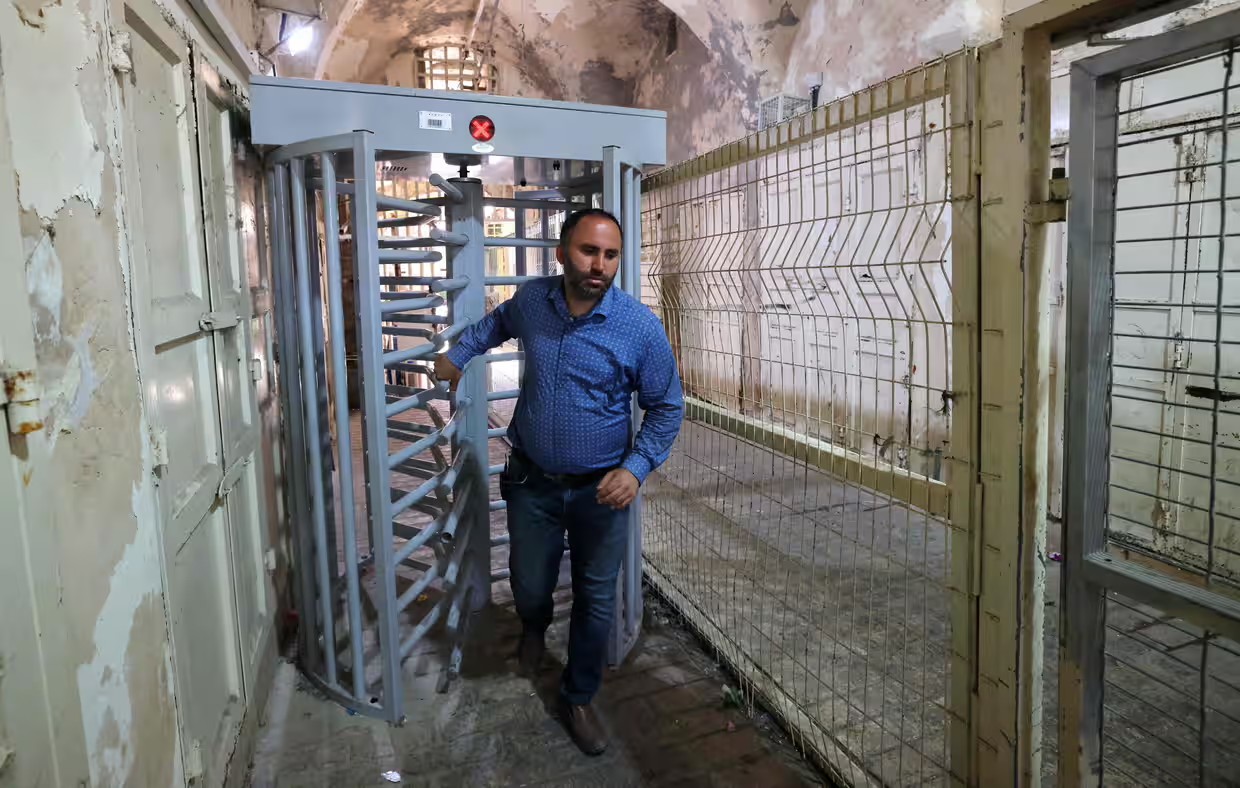Summary of The Guardian’s article
The documentary “The Settlers” by Louis Theroux has gained significant attention, provoking strong reactions such as appreciation, dismay, and outrage. Many viewers expressed shock at the realities presented in the film, feeling that mainstream British media is finally addressing the situation in the West Bank. The film is a follow-up to Theroux’s earlier work, “Ultra Zionists,” and addresses the increasing activities of Israeli settlers, which have intensified over the years. The Israeli government has supplied settlers with weapons, leading to a rise in violence against Palestinians, such as shootings and property vandalism.
The film is described as a “road movie” through the West Bank, capturing the complexities of life under military occupation. Theroux, along with director Josh Baker and producers Sara Obeidat and Matan Cohen, spent over a week filming in the area, engaging with the settler community. They interviewed figures like Ari Abramowitz, who, while armed, expressed a dismissive attitude towards Palestinians, claiming they “don’t exist. ” Theroux also spoke with Daniella Weiss, the so-called “godmother” of the settler movement, who has advocated for the expansion of Israeli settlements for over five decades. During their interview, Weiss showed Theroux a map illustrating her vision of a Greater Israel and expressed contempt for international law regarding the movement of people into occupied territories.
Weiss held an event promoting Jewish-only settlements in Gaza, insisting that Palestinians should move to other countries. She brought a rabbi to the Gaza border who called for the “cleansing” of the land. The film’s final scene captures a heated discussion between Weiss and Theroux at a recently recognized settlement. Throughout the filming process, Theroux observed the same disparity he noted in his previous visit years earlier: the privileged status of Jewish settlers under civil law versus the military rule experienced by Palestinians.
The film’s response included immediate positive reviews and significant online discussion, with some critics noting a shift in Theroux’s approach, highlighting a moment where he confronted Weiss about her views. While some critiques claimed that Theroux had chosen extreme representatives of the settler community, others pointed out the stark differences in how fringe figures are treated in the UK compared to their influence in Israeli politics. The documentary not only sheds light on the situation in the West Bank but also raises questions about representation and power dynamics in both Israeli society and the larger geopolitical context.
From the article:
“But the urgency here is that West Bank settlers are a bellwether for where society may be going in countries across the west. In the past, the settler agenda has been supported by governments on both the left and the right but it’s currently being embraced by populist leaders and elements of the far right who find much to like about its ethno-nationalist and anti-democratic character. Around the same time that the documentary aired, Israel’s national security minister, Itamar Ben-Gvir, who is a settler, was being hosted at Mar-a-Lago. And so a film about extreme West Bank settlers isn’t simply about a region of the Middle East. It’s also about “us”.
While the global response to The Settlers has been encouraging in the main, there is also an aspect to it that is deflating. As Peter Oborne pointed out, quite rightly, in a sympathetic review, “this film tells us nothing new about the situation in the occupied West Bank”. The facts were well known to those paying attention – from the Oscar-winning No Other Land, to ITV’s Our Land: Israel’s Other War, a documentary that includes extraordinary scenes of settlers seizing control of farmland and making veiled references to intimidation and displacement.
One of the sadder and more outrageous results of our film involved the Palestinian activist Issa Amro. Amro lives in Hebron, a West Bank city that, since 1968, has had 700 or so settlers living at its very heart, in a cordon of Israeli military occupation. We filmed Amro on a walk through this so-called “sterile zone” – the term the army uses. Just a few days after the film aired, Issa reported on his social media that he had been harassed by settlers and soldiers at his home, in what appeared to be a reprisal for his participation in our documentary. Our team got in touch with him and did its best to provide appropriate support.
The scholar and writer Hamza Yusuf said on X that the outrage over everything depicted in The Settlers “says a lot about how well the media has shielded the public from the brutal reality of Israel’s occupation”. As proud as I am of the film, I know that our documentary could never capture the full impact of what is unfolding in the West Bank. The reality of the displacement and harassment is often in interactions that are more extreme than those I saw.
So I am grateful for the reaction. I encourage people to read and consume more on the subject. I’m glad we were able to show as much as we did. I also wish we could have shown much more.”
Article source: https://www.theguardian.com/commentisfree/2025/may/10/louis-theroux-documentary-on-israeli-settlers-in-the-west-bank?CMP=Share_iOSApp_Other
